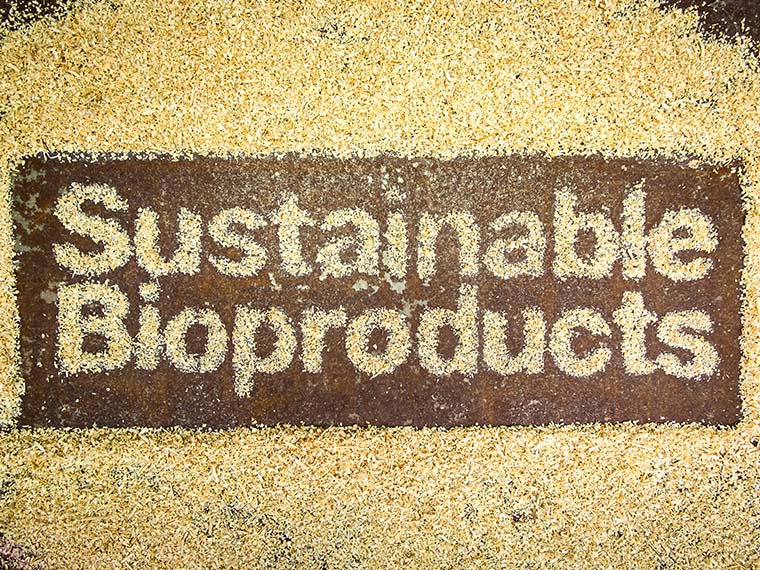The information presented on this page may be dated. It may refer to situations which have changed or people who are no longer affiliated with the university. It is archived as part of Mississippi State University's history.
When we think of feedstocks, rarely do trees come to mind. But that's the parallel Dr. Rubin Shmulsky, professor and department head of sustainable bioproducts, draws when talking about how his department partners with the Mississippi Agricultural and Forestry Experiment Station.
"In general, agriculture and forestry have many commonalities. We both try to squeeze as much value as possible from natural, plant-based products," Shmulsky said. "In sustainable bioproducts, we generally consider trees our feedstock, but we also investigate other ag-related, nonfood materials."
The department partners closely with MAFES scientists from agricultural and biological engineering to plant and soil sciences to biochemistry, molecular biology, entomology, plant pathology, and more.
"Both our department and these other disciplines have similar fungi that impact our products. We have common insect and moisture-related issues. As scientists in these related agencies, we have lots of room for cooperation," Shmulsky said.
Currently, Drs. Jason Street and Beth Stokes, both assistant professors, and Drs. Dan Seale and Hamid Borazjani, both professors, are among the sustainable bioproducts faculty partnering with MAFES counterparts. Their teams cover such topics as industrial water treatment, composting organic industrial waste, development of bioenergy from agricultural and forest residuals, bio-electricity from sawmill residuals, soil treatments and amendments, and the development of chemicals and technology that fight off decay fungi and insects like termites.
Shmulsky said collaboration proves essential when research problems require expertise from more than one discipline.
"One example of vital collaboration centers on the development of new wood preservatives," Shmulsky explained. "It is generally accepted that it's very costly to develop new wood preservatives. With only a few manufacturers of this type of technology, new developments may be cost-prohibitive. But, with the benefits and innovation in agriculture, often new wood preservative chemicals are vetted first in the agriculture world. In that instance, our partnership is greatly beneficial."
In another example, sustainable bioproducts researchers have worked alongside MAFES scientists to regulate genetic switches in wood decay fungi.
"By applying ag-based biochemistry, we can potentially make it so decay fungi lose their ability to degrade wood products," Shmulsky explained. "This research might help reduce the need for costly copper-based wood preservatives and help the environment at the same time."
The partnership between the Department of Sustainable Bioproducts in the College of Forest Resources and MAFES helps extend forest resources and makes wood products last longer.
"Our Division of Agriculture, Forestry, and Veterinary Medicine's close connection with industries and constituents throughout the state and beyond helps keep us all focused intently on both societal benefits for today as well as conservation for tomorrow."

